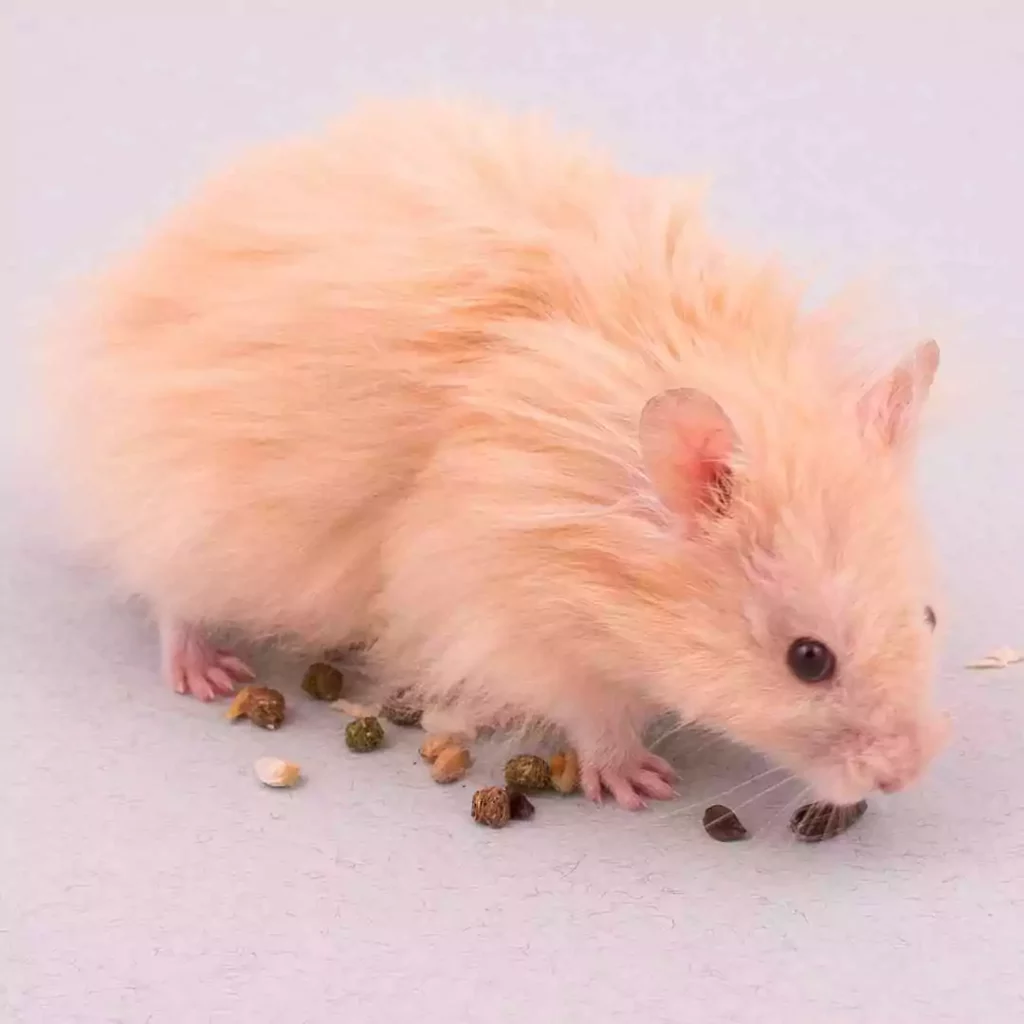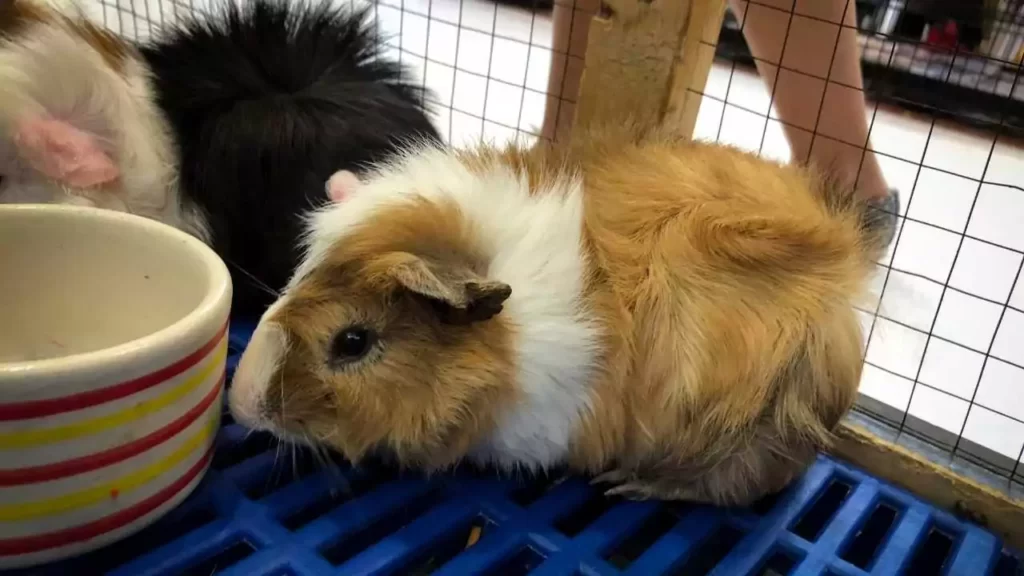A hamster is an adorable and loveable pet, but taking care of a hamster can be difficult. There is so much to learn about your little pet’s diet.
One of the questions that might arise in your mind is Can Hamsters Eat Walnuts? Are they safe for them?
We know that hamsters are rodents, and they can eat almost all types of nuts, and walnuts are one of them.
Yes, Walnut is a safe nut for all types of hamsters. Hamsters can eat raw walnut as well as whole walnut, but they will not like to eat the outer shell of the nut. You can treat them once or twice a week. Walnuts are rich in calcium, phosphorus, Vitamin A, and other nutrients that are healthy for your little pet.
Let’s explore more about hamsters and walnuts.
Can Hamsters Eat Walnuts?

Walnuts are delicious nuts that grow on the tree, unlike peanuts that grow underground. Hamster can eat this nut without any second thought. However, being a hamster owner, you should be careful with the number of walnuts you are feeding.
Walnuts are healthy for your hamster, and they provide numerous benefits to them. But before feeding walnuts to the hamster, consider the following things:
- No sweeteners are added to them
- No added salt
- No extra ingredients like honey
Walnuts are high in fats, so make sure not to overfeed your hamster.
Health Benefits of Walnuts
All you need is to consider the number of walnuts while feeding it to your hamster. Walnuts are rich in calcium, magnesium, phosphorus, manganese, and Vitamin A. Here are some health benefits of walnuts for your little hamster:
Rich in Calcium
Walnuts are rich in calcium, and hamsters need calcium for strong and healthy bones. Moreover, calcium also helps prevent diseases like diabetes, high blood pressure and also against certain types of cancers.
Rich in Phosphorus
Hamsters also need phosphorus for healthy living as phosphorus helps develop, maintain, and repair the tissue cells in a hamster’s body. Walnut is an excellent phosphorus source, and you must need this nut into your hamster’s diet.
Rich in Magnesium
Magnesium is essential for healthy bone health and proper bone formation in hamsters. It also prevents severe diseases like diabetes in hamsters.
Rich in Vitamin A
Walnuts are also rich in Vitamin A, a potent antioxidant and vital for your little hamster. By feeding walnuts in moderation, your hamster will get a dose of great antioxidants for its well-being.
How many walnuts Can You Give a hamster?
Because of the high calcium content, walnuts can’t be fed very often. Only provide once or twice a week. One or two walnuts are enough for your hamster as a treat in a week.
Otherwise, overfeeding walnuts can lead to several health issues like bladder or kidney stones and bad digestion, and abdominal pain.
Can Dwarf Hamsters Eat Walnuts?
Yes, dwarf hamsters can also eat walnuts but only in a small amount. All kinds of hamsters can produce walnuts, but the only thing to consider is the amount of serving.
Because of the small size of dwarf hamsters, only serve a small amount of walnut to them only once a week.
Can Chinese Dwarf Hamsters Eat Walnuts?
Yes, Chinese dwarf hamsters can also eat walnuts but only in a small amount. Due to their smaller size, it is recommended to feed a small amount of walnut one or twice a week. However, overfeeding can lead to severe health issues.
Can Robo Dwarf Hamsters Eat Walnuts?
Robo dwarf hamsters are smaller than Syrian hamsters, and they can eat walnuts. It would be best if you only fed walnut to your Robo dwarf hamsters once a week. A large amount of walnut will fill their small stomach immediately, and overfeeding can lead to health issues.
Can Russian Dwarf Hamsters Eat Walnuts?
Russian dwarf hamsters can also eat walnuts but only as an occasional treat. Due to their small size, it is recommended to serve walnuts in a moderate amount.
Can Syrian Hamsters Eat Walnuts?
Syrian hamsters are known as desert hamsters, and they can eat walnuts a couple of times a week. Walnuts are healthy for them as they help in their growth.
Can Hamsters Eat Hazelnuts?
Like walnuts, hamsters can also eat hazelnuts, and in fact, they will love to eat them. You just need to be careful with the benefits and risks of feeding hazelnuts to your adorable hamsters.
Can Hamsters Eat Black Walnuts?
Yes, hamsters can also eat black walnuts, just like an average walnut. They also provide health benefits to your little pet. For instance, it helps maintain tissue cells and helps with stronger bones and teeth.
Can Hamsters Eat Raw Walnuts?
It is definitely yes, so hamsters can eat raw walnuts even though raw walnuts have more nutrients like potassium, magnesium, manganese, Vitamin A, and K.
What Nuts Are Safe for Hamsters?
Hamster can eat some types of nuts that are safe for them. Here is a list of all the safe nuts for hamster, including walnuts:
- Peanuts
- pecans
- pistachios
- walnuts
- pine nuts
- cashews
- hazelnuts
- sunflower seeds
- pumpkin seeds
What Nuts Can Hamsters Not Eat?
There are some nuts that hamsters can’t eat at all, and you don’t need to feed them to your adorable hamster. The list of nuts that are unsafe for your little hamster is as follows:
- Almonds (unroasted, bitter almonds, any other kind of almonds)
Can Hamsters Eat Walnut Shells?
Walnut shells are complex, and they are not chewable for your little hamster. To avoid any serious health concerns, serve walnut to your hamster without its hard shell.
Your little hamsters would love to crack the walnut shell. For them, only the inner part of walnut is delicious, and they enjoy it to get maximum health benefits out of it.
Final Thoughts
Walnut is a safe nut for all types of hamsters, including Syrian, Robo, and Chinese Dwarf. To sum up, if you want to feed walnuts to your hamster, you must consider the amount. Hamsters can eat this nut, and even they love them. Before feeding walnuts to your hamster, you must consider this article for complete knowledge.
SmallPetsX.Com does not provide veterinary advice. Our aim to help small pet owners understand their pets a little better so that they can provide their pets with the life they deserve. All content is therefore for informational purposes only. If you're concerned about the health of your pet you should seek medical advice from a vet.




